4 min read
Overcoming Cognitive Entrenchment, So We Can Make Breakthroughs
![]() Shane Snow
Jan 15, 2023 12:43:05 PM
Shane Snow
Jan 15, 2023 12:43:05 PM
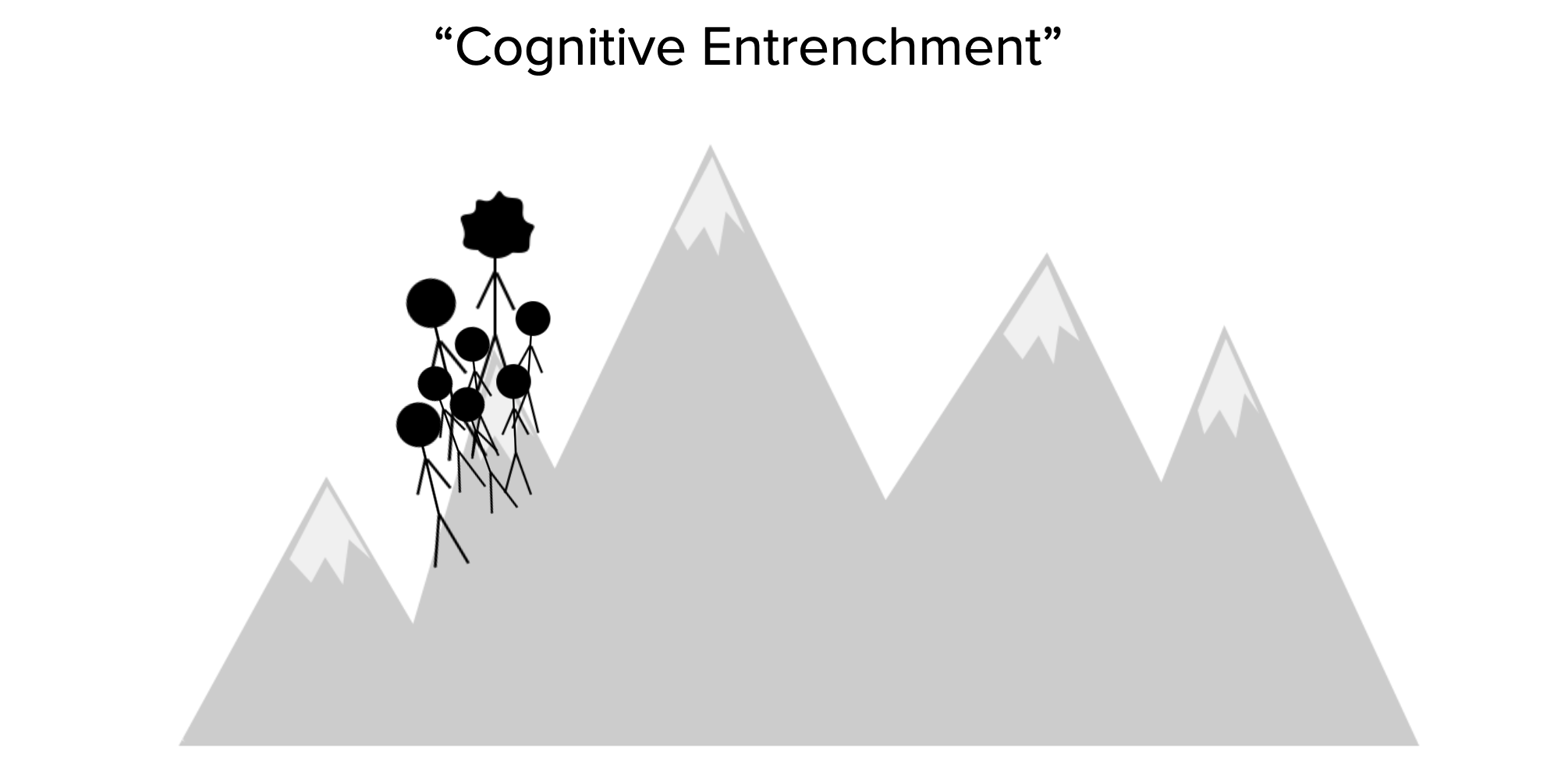
Early in my career, I got some advice from a CEO I looked up to:
“Stay in your lane.”
The best businesspeople, he said, were masters of focus. “Don’t let anything outside of your lane distract you for a second from the race you’re running.”
It took me years to realize that this is terrible advice.
At least, if your goal is innovation.
Because, first of all, tell “stay in your lane” to the world’s richest man, who, like him or not, owes his compounding success to the fact that he’s constantly crossing back and forth between multiple lanes. Tell that to history’s top-rated presidents and CEOs, who, as I analyzed in the first chapter of my book Smartcuts, got to the top and did well there because they were willing to switch lanes in their career journeys.
(And by the way, this CEO's company was massively disrupted a few years after he gave me this advice. I'm not happy to say that, but in hindsight the foreshadowing was there.)
Turns out that staying in your lane is akin to standing in line. A race run in one lane is a game with rules defined by someone else—at a specific point in time, for specific reasons that may not apply as well today as they did then.
And as we learn from research and history, innovation is about changing the game. It’s about figuring out a new way to jump over the bar while everyone is killing themselves over jumping the old way.
Why you should get out of your comfort zone and leave your lane
We see the power of “leaving your lane” just about every time we watch a detective procedural. Take The X Files, for example (since it’s my favorite):
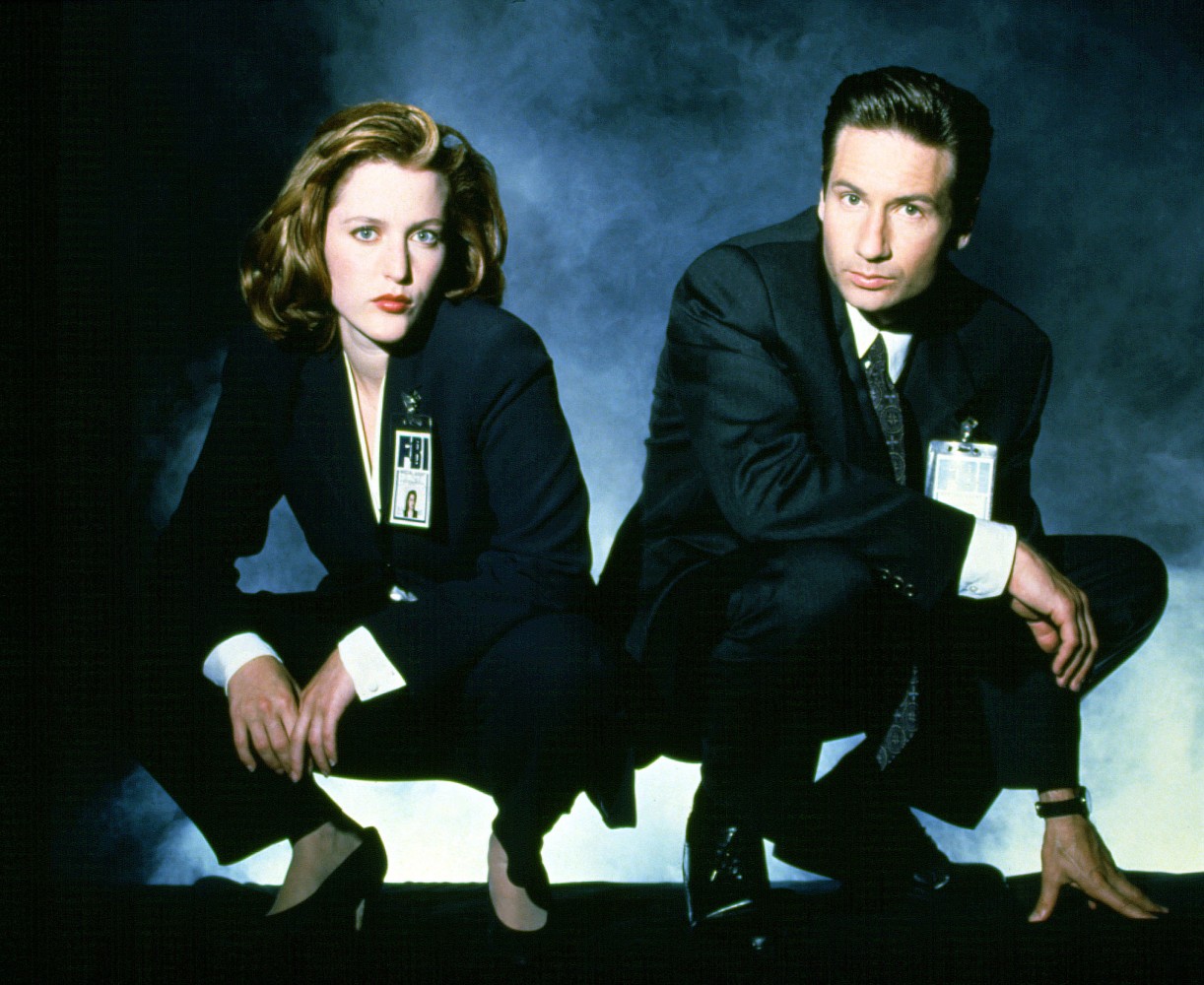
Scully’s a medical doctor. Top of her class in forensic science. She performs a mean autopsy. But then she gets assigned to work with Mulder, who’s a world-class psychological profiler and also obsessed with aliens and the occult. Scully gets pulled into Mulder’s lane to help him with his work and then… she becomes an even better forensic scientist—better than she would have if she’d stayed on her normal career track. (And Mulder, btw, gets better at his job by veering into Scully’s lane, too.)
It’s a simple illustration, I know, but here’s what’s afoot:
Metaphor #1: The Knowledge Highway
Within your lane is a body of knowledge. At first, you’re running to catch up to those in your lane who are ahead of you. At a certain point if you work hard, you might become a master of that body of knowledge. And at that point, you’ve got a great toolkit of perspectives and heuristics for your “lane.”
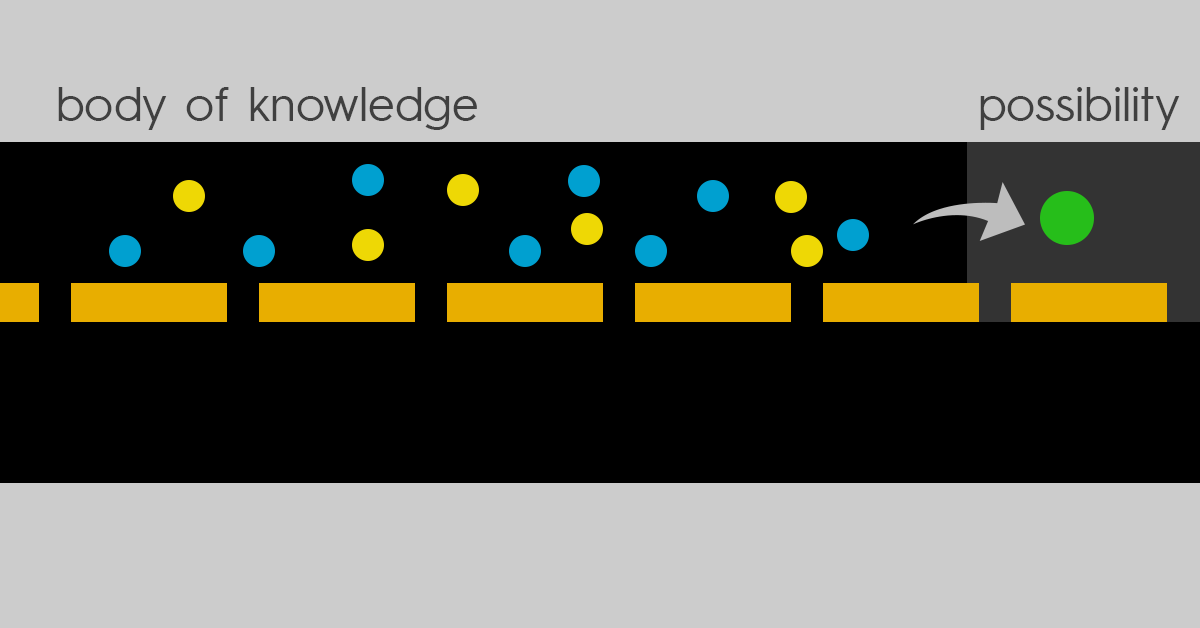
But there are two problems:
- That toolkit is naturally going to have limits (the boundaries of your lane).
- Everyone else in your lane is using the same toolkit
This is true of everyone who's in every lane alongside you. The possibilities are limited by the body of knowledge in a given lane:
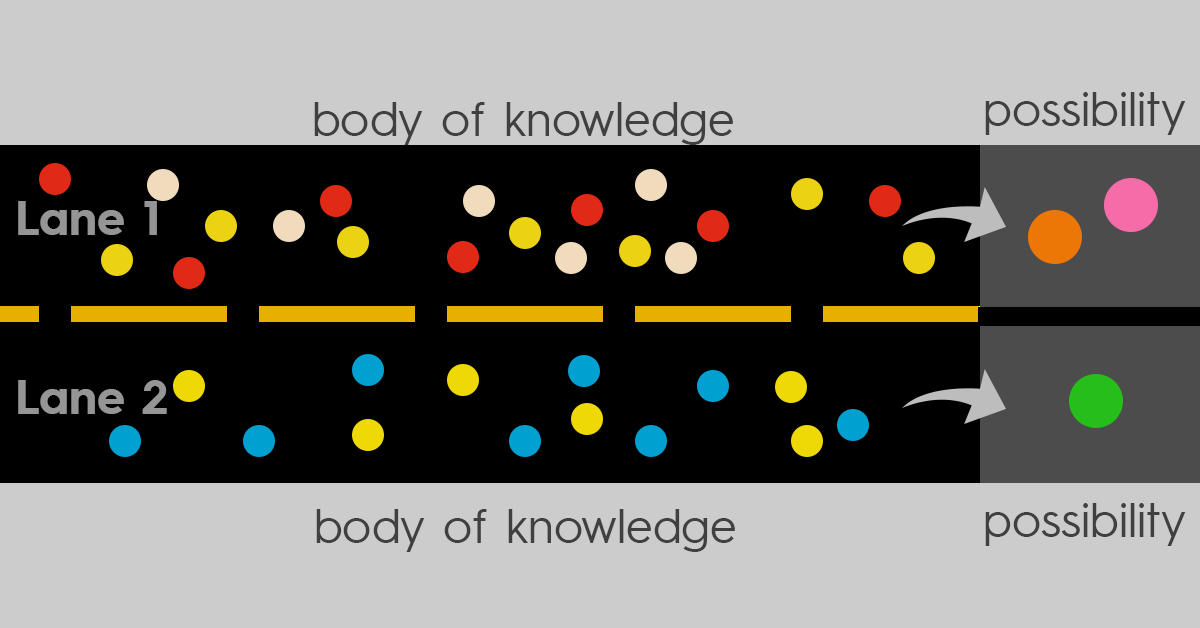
The only person who can gain an advantage in this scenario is the person who imports something from a different lane.
In fact, at a certain point, the only way to change the possibilities in a given lane (or industry, etc.) is to do exactly that:
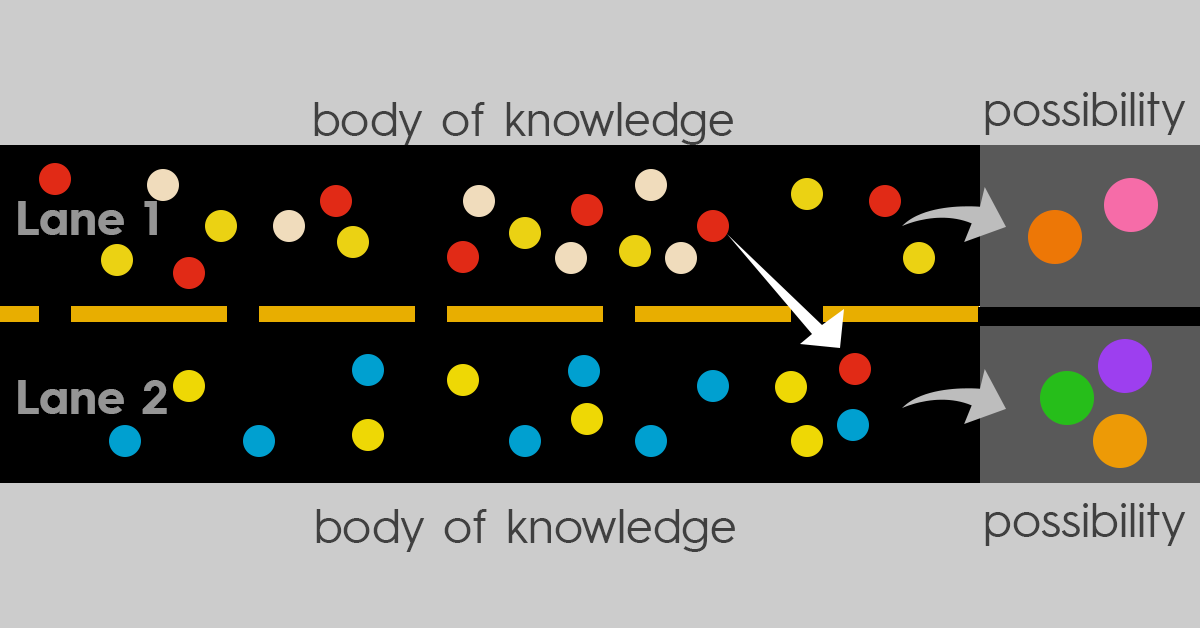
Even if the person who's importing from another lane is not the biggest master of their original lane, their increased diversity of tools can give them a higher chance of making breakthroughs in that lane.
Now, you have to go down this lane far enough to gain meaningful expertise and/or perspective. (Scully got her medical degree, after all.) But this is the principle:
You cannot change a game by playing the same game, with the same tools, with the same rules.
Metaphor #2: The Mountain Range Of Problem Solving
This brings up questions, of course. For every breakthrough new way to approach a problem (reliable electric cars, Olympic high jumping, whatever), there are tons of worse ways than the prevailing best practice, too. Attempting to play a different game is risky. You could go through a ton of work for nothing.
In Dream Teams, I borrow an analogy from complex systems researcher Dr. Scott Page, problem solving can be likened to hiking around a mountain range. There are plenty of low-quality solutions to any problem out there.
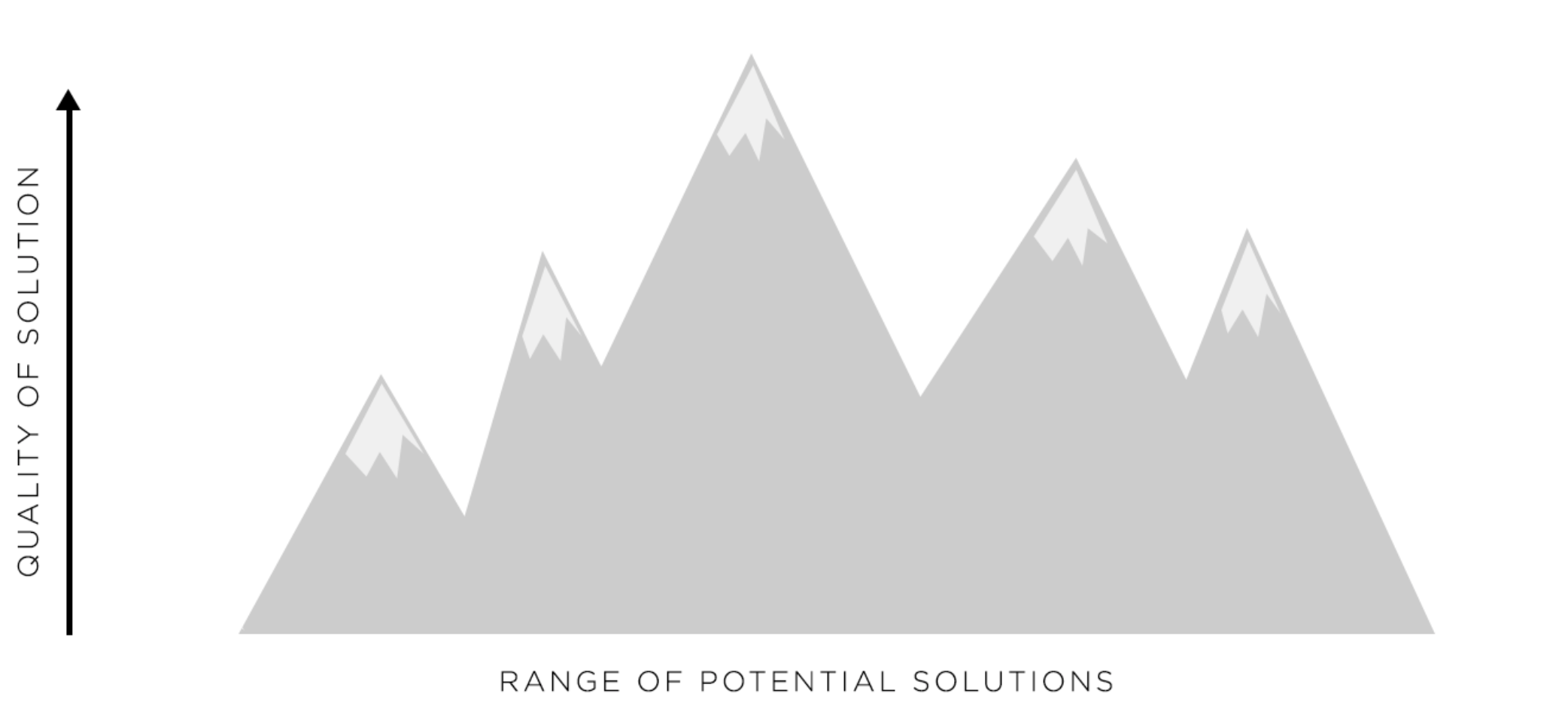
But once we find a good solution, it becomes easy to get “cognitively entrenched” on a given mountain peak. Why? Because it takes effort to climb down and explore again.
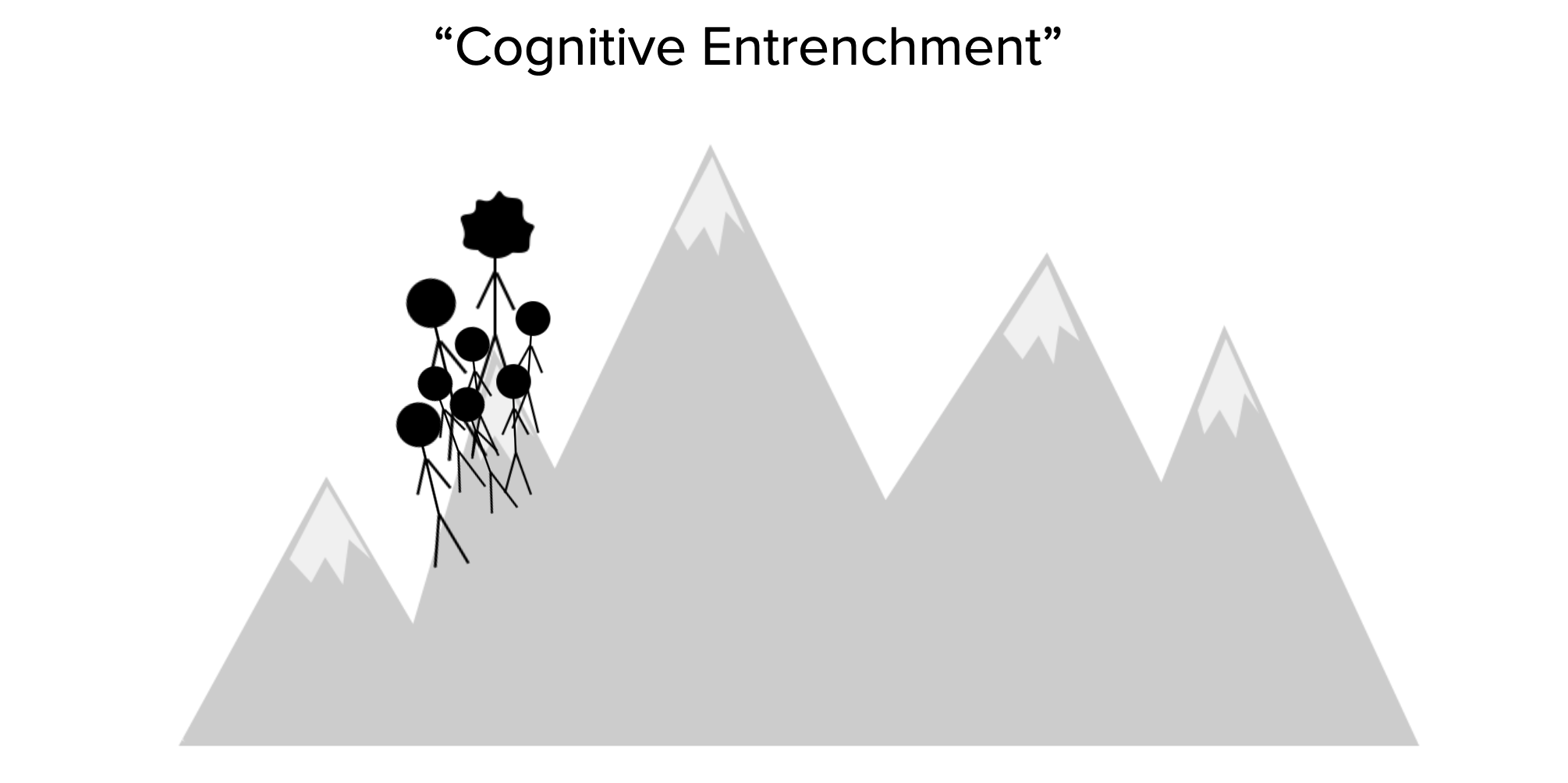
Even if at one point we have found the absolute tallest peak on the mountain, changes in technology and consumer behavior are like earthquakes that create new peaks in the mountain range. What once was the greatest way to do something might now be mediocre. But that mediocre solution is sticky, because we’ve been sitting on it for so long.
It takes looking at the mountain range from a different perspective—often from someone in a different industry or, to finally mix the metaphors together, who's spent time in a different lane—in order to break out of our cognitive entrenchment.
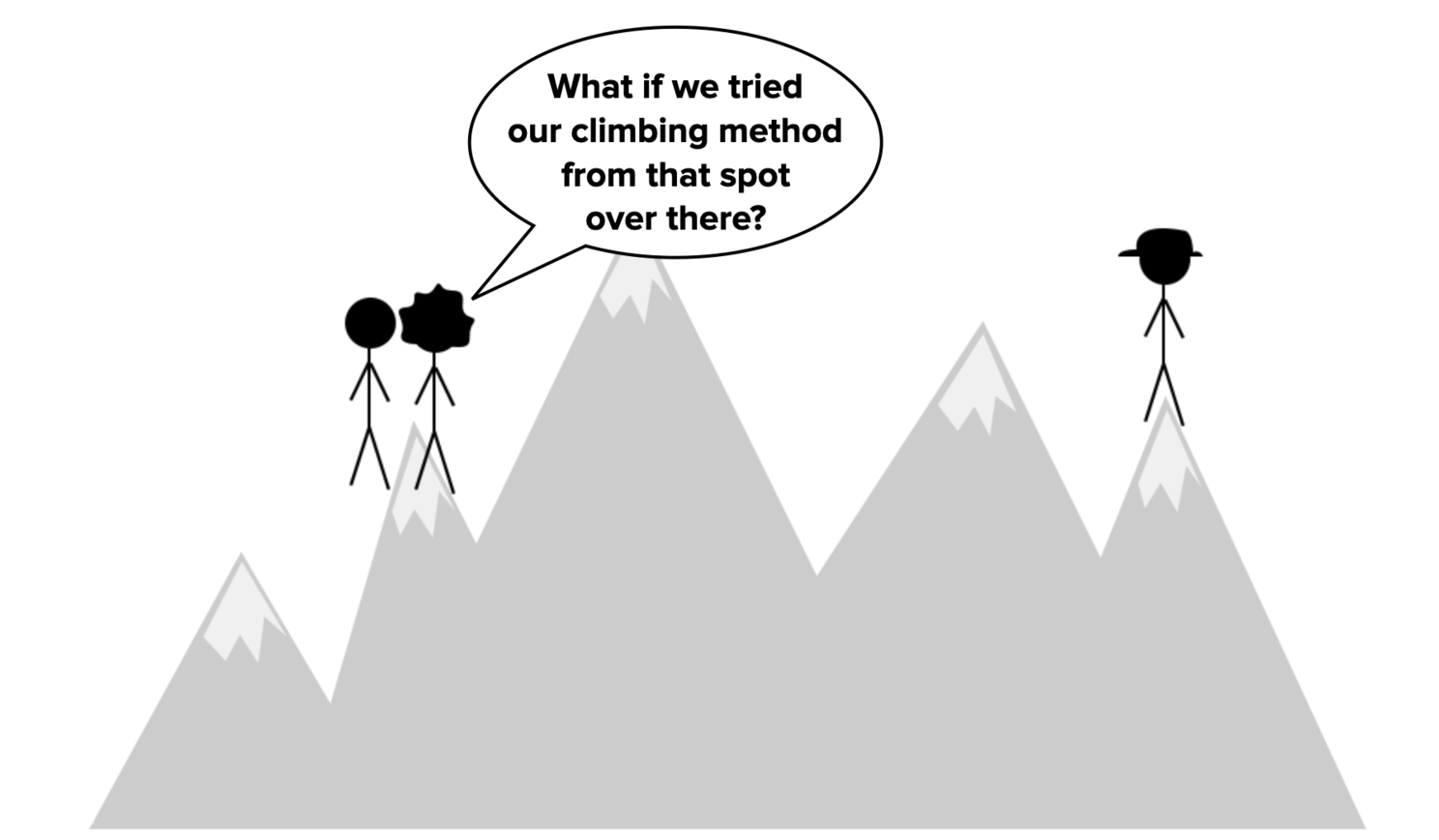
It's hard to know whether it's going to be worth the hike downhill to explore new parts of the metaphorical mountain range. We not even have the tools to do so at a certain point—or our cognitive entrenchment might be too great.
Seeing the mountain range from a different perspective is a much more effective way to gauge the risks and possibilities in exploring new solutions. And,
simply seeing a problem from a different perspective often makes new solutions obvious.
This is the thinking behind my new company, SHOWRUNNER, for example. We started tackling the mountain range of film and TV production after it became clear that the fantastic solutions of the 1970s, 80s, and 90s were now slow and often painful for workers—and led to less time spent on creative tasks than we would like. Given the amazing technology out there today, we suspected that there were taller mountain peaks to be discovered in the industry.
But finding new solutions to old problems is hard. We realized that, in addition to a deep knowledge of the "filmmaking lane," we needed to be importing perspectives from other lanes if we were to come up with any kind of game-changing solutions. And that's exactly what we look for in hiring: people who've changed lanes and can bring deep expertise and perspectives into this industry. (Our Chief Product Officer, for example, built a career designing education technology, before stepping out of his lane and moving to Paris to become a movie director—and now he's using that combination of perspectives to lead the design of our film tech product.)
All Companies Should Encourage Their Team Members To Explore Outside Their Lanes
While many companies are afraid of their employees having side projects or pursuing deep interests outside of their area of expertise (“What if they quiiiiiiitt? NooooOooOo!”), the smartest teams recognize that every side trip is an opportunity to find ideas that inspire our big journey. And that’s worth the risk. That’s why one of the bullets in our list of team philosophy is “we encourage your side projects.”
The moral of this newsletter, in other words, is this:
Sure, stay in your lane... if you want to stay in line.
As for me, I’m not interested in that. I’m interested in innovation. And by definition, innovation is about charting a new path.
In the words of someone else I always looked up to: “Where we’re going, we don’t need roads.”

